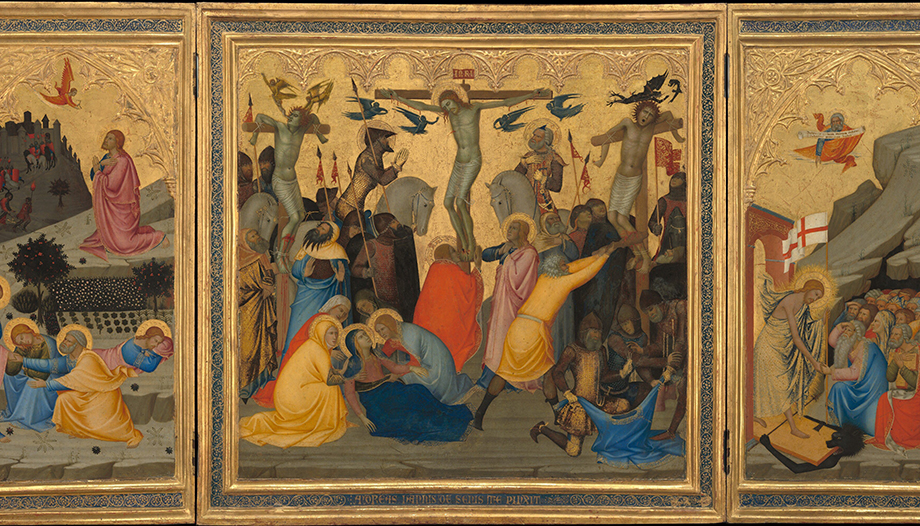I would like to begin this new course by inviting you to meditate on faith. The Letter to the Hebrews defines faith as "the assurance of things hoped for; the proof of things not seen" (Heb 11:1). It goes on to present as examples of faith "our elders": Abel, Enoch, Noah; above all, it presents Abraham and Sarah, Isaac and Jacob, Moses, Joshua, Gideon (....), David, Samuel and the prophets. In faith they all died without having attained the object of the promise.
And what is the promise? The promise is our Lord Jesus Christ. In Him we know what is the hope to which we have been called; what is the riches of the glory bestowed by Him as an inheritance on the saints (cf. Eph 1:16-19).
Our faith in Jesus Christ is not an act of purely natural knowledge; it is not a merely rational conclusion that can be deduced from scientific, historical, philosophical premises....
Our faith is certainly not irrational, but it is not purely rational either; if it were purely rational it would be exclusively reserved for the intelligent, the "smart", those who study....
Faith involves the understanding, but also the will, which is always attracted by the good and, even more, by the supreme good, which is God. Our reason sees Christ as a man who can be believed (Jn 8:46); no one has been able to accuse him of sin (Jn 8:46); he works miracles that testify to the truth of what he says (cf. Jn 3:2) and our will, feelings and affections are attracted by his truthfulness, his goodness, his affability... His whole person is tremendously attractive to the point that "the world goes after him" (Jn 12:19).
However, all this is not sufficient for the act of faith. To be able to make the confession of St. Peter: "You are the Messiah, the Son of the living God" (Mt 16:16) is grace, it is a gift of God, it is not the fruit of our reason or our will. And this great gift of God comes to us in the Church and through the Church; and in the Church, through apostolic succession. "Through apostolic succession, time is dead; in apostolic preaching there is no yesterday, no tomorrow; only today" (K. Adam).
In the Christian religion, the person of the Founder himself is the object of faith; he is the integral background of faith. Unlike other religions, in which the image of the Founder fades and fades with time, in the Christian religion faith is always directed directly to the living Jesus.
The Church always confesses: "I myself have seen Jesus; I myself have heard him and hear him preach; I see him risen; I deal with him as a living and present person".
For this reason the Gospels are a living letter; if it were not for the Church, the living Body of Christ, the Gospels would be a dead letter. "Without Scripture, we would be deprived of the genuine form of Jesus' discourses; we would not know how the Son of God spoke, but, without (apostolic) tradition, we would not know who it was that spoke and our joy in what he said would likewise disappear" (Mohler).
When a dying person in the Church prays with faith: "Jesus, I trust in You", the same confession of Peter beats in his heart and on his lips: "You are the Christ, the Son of the living God" (Mt 16:16) and that of Stephen: "I see the heavens opened and the Son of man standing at the right hand of God" (Acts 7:56).
That dying man or woman will look at the priest, who is probably in front of him or her, and the priest at the bishop, and the bishop at the Episcopal College and its Head, the successor of Peter in Rome. By apostolic succession, Christ is as close to us as he was to Peter. It is pure actuality!







